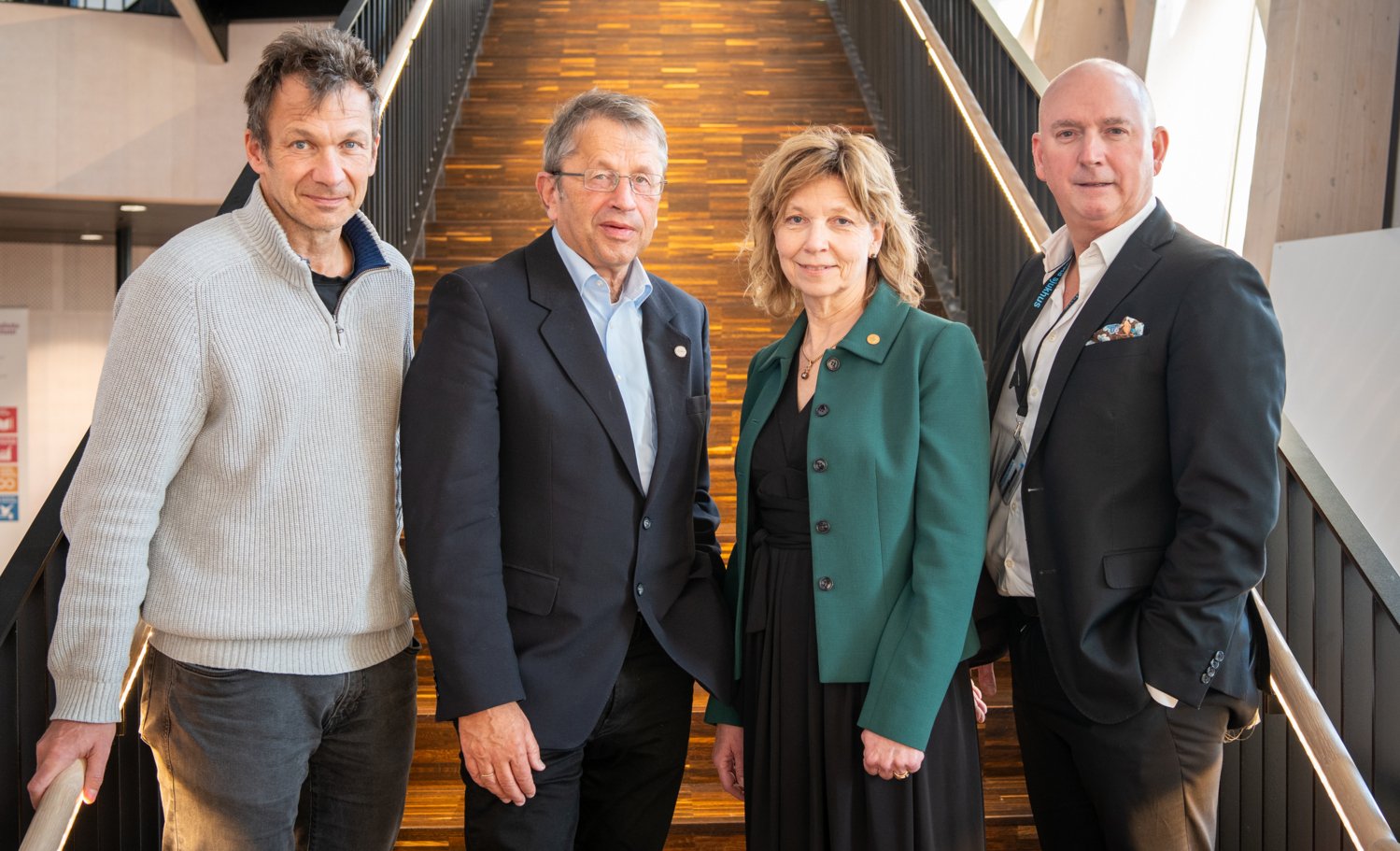Strengthened European cooperation for tomorrow’s healthcare

Leaders and experts from Charité – Universitätsmedizin Berlin, Karolinska Institutet and Karolinska University Hospital met in Stockholm on 7 November to discuss cooperation in the fields of prevention, AI and advanced therapies. The parties have been in formal collaboration since 2023.
The meeting gathered hospital directors, university rectors and representatives of international officers for a day of discussions on how academic-medical centres can collectively shape the future of healthcare.
The agenda comprised three strategic areas: preventative care, AI and advanced therapies. The principal message was that cooperation is key to using scientific knowledge for the betterment of health for all.
From treatment to prevention
There is a strong and clear commitment from all parties to drive progress from the treatment to the prevention of disease by, for instance, putting research to clinical advantage.
KI president Annika Östman Wernerson and dean of Charité Joachim Spranger also discussed continuing collaboration in education.

“It’s clear that we’ll need to cooperate on several levels to overcome the huge hurdles we have in front of us,” says Professor Östman Wernerson.
The delegates identified several concrete areas of cooperation during their meeting, including digital and personalised prevention, AI-assisted clinical decisions and cell, gene and other advanced therapies.
Key progress factors
New digital platforms, common data frameworks and multidisciplinary education initiatives were also discussed as key factors of progress.
Ongoing and proposed EU projects under such programmes as Horizon Europe will continue to serve as catalysts for cooperation among the different institutions.
The meeting concluded with a clear commitment to continued dialogue and concrete follow-up activities.
Charité, Karolinska Institutet and Karolinska University Hospital will persevere in their efforts to enhance the EU’s position as a global leader in evidence-based, data-driven and patient-centred healthcare.
